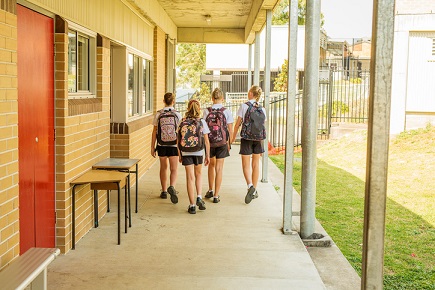
On Monday, thousands of South Australian teachers walked off the job as a stand-off with the state’s government over work and pay conditions threatens to intensify.
The full day Stop Work action was the result of the South Australian Government providing an initial Enterprise Bargaining offer after more than 12 months of negotiations that the Australian Education Union (AEU) says does not address key issues with working conditions for educators.
More than 250 schools closed because of the industrial action.
The union recently rejected the government’s offer of a 2.35% annual pay rise for the state’s 28,000 teachers along with other changes to working conditions. However, the government says it is unable to meet the demands for more pay.
“No amount of protest action is going to give me, as the Treasurer, any more money to be able to afford a more generous increase of salary,” SA Treasurer, Rob Lucas, told 9 News.
However, AEU president (SA Branch), Howard Spreadbury, said that not taking action would lead to “a far more detrimental outcome for children in the long run”.
“That is not a risk we can take,” he said.
In a bid to settle the dispute, the government has also proposed $45m over the next four years to provide improved support for ‘high complexity’ schools. An additional $13m has been earmarked for new Highly Accomplished and Lead Teacher (HALT) positions.
A further $4.3m will be put towards attracting and retaining staff in the state’s country schools.
Spreadbury said that while he remains hopeful for a positive resolution, further industrial action is possible.
“Branch Executive will be finalising next steps, but this considerable display of support for public education cannot be ignored by the Government,” Spreadbury said.
“Whilst we remain open to discussing a resolution, the Marshall Government needs to remember that actions speak louder than words.”
Peter Mader, president of the South Australian Secondary Principals' Association (SASPA), said that whilst it is always disappointing to see members of the education profession having to take industrial action, the AEU’s response was not unexpected.
"The SA Department for Education has outlined an ambitious change agenda and, as we know, 'change is resource hungry'," Mader told The Educator.
"The Government’s offer did not go close to producing the improved professional conditions needed by school teachers and principals if they are to generate the improved literacy and numeracy results detailed by the Department."
Mader said the risk for public education in SA is that the AEU will initiate a “work-to-rule” campaign which was last implemented a decade ago.
"Principals experience of this type of industrial action was that it took teacher goodwill out of schooling," he said.


